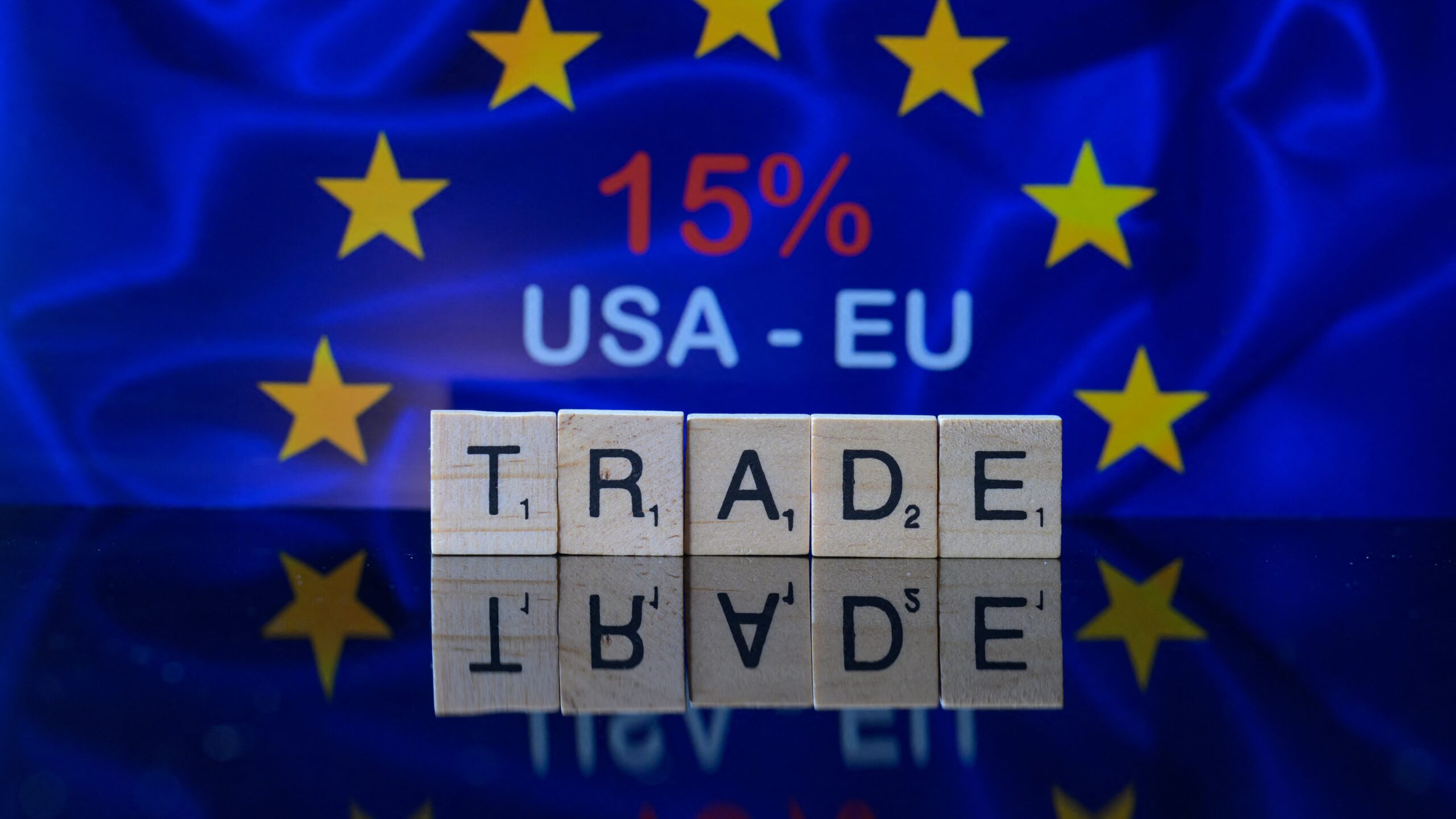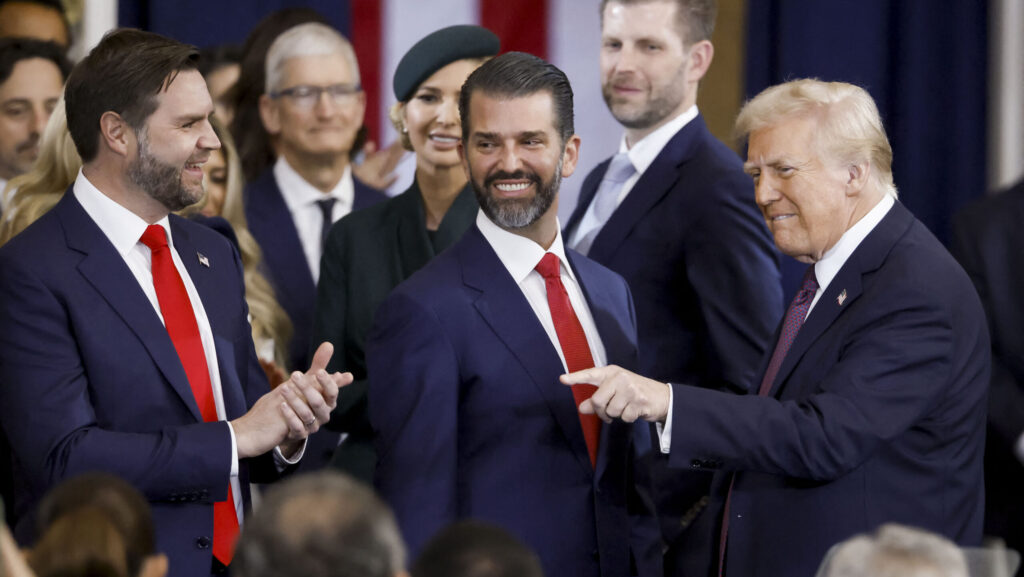On 30 July 2025, European Commission President Ursula von der Leyen stood next to President Donald J Trump and announced what was declared a ‘generational modernization’ of transatlantic trade. The reality, however, was quite different. As headlines across Europe made clear, the agreement was seen by many as a humiliation—a capitulation that traded away long-term European economic sovereignty for short-term tariff relief.
The context was not subtle. Trump had threatened a sweeping 30 per cent tariff on EU automobile exports—an existential concern for Germany’s auto industry, and a pressure point that von der Leyen’s Commission appeared unwilling or unable to resist. The resulting deal gave the United States nearly everything it wanted: $750 billion in European purchases of American energy by 2028, $600 billion in EU investment into the US economy, and broad access to EU markets for US agriculture, industrial exports, and tech.
In exchange, the EU walked away with limited tariff relief and a heavily one-sided agreement that strips it of several of its remaining economic levers.
Among the most damaging concessions was the EU’s abandonment of its right to impose digital services taxes or network usage fees—tools long seen as essential to counterbalancing the dominance of US-based tech platforms in the European market. By surrendering these instruments, the EU effectively gave up a core element of its regulatory sovereignty—and with it, the ambition to shape global digital norms on its own terms.
‘The EU effectively gave up a core element of its regulatory sovereignty—and with it, the ambition to shape global digital norms on its own terms’
This is not merely a question of policy detail. Europe has spent the past two decades building a reputation as a global regulatory power—a ‘standards setter’ in areas ranging from data privacy to environmental rules to AI ethics. In one agreement, rushed and reactive, the Commission undermined that reputation. Instead of defending Europe’s model, it chose to avoid confrontation.
The asymmetry of the deal goes further. While the US secured sectoral gains—particularly in agriculture, pharmaceuticals, and advanced manufacturing—the EU left its own producers without comparable protection or strategic advantages. European steel and aluminium exports remain subject to high US tariffs. Sensitive sectors like semiconductors, where the EU has invested heavily in reshoring and strategic autonomy, were left out of any structural commitments. The Commission may speak of ‘modernization’, but many of its key industries are now more exposed, not less.
How this happened is not entirely mysterious. Trump’s negotiating strategy is well known: apply maximum pressure, present a binary choice, and reward submission with rhetorical gestures of partnership. That this approach worked so easily is a failure not of tactics, but of preparation. The European Commission entered the final weeks of negotiation deeply divided, with key member states—including Germany and Ireland—focused on avoiding tariffs at all costs. Their national interests, shaped by auto exports and tech lobbying, overrode any broader effort to define a coherent EU-level red line.
But ultimate responsibility lies with von der Leyen. Her inner circle took control of the final stage of talks and, by most credible accounts, was prepared only to say yes. There was no credible contingency plan, no willingness to delay or walk away. The possibility of accepting market turmoil in exchange for a more balanced negotiation was never seriously considered. The Commission blinked.
‘There was no credible contingency plan, no willingness to delay or walk away’
The broader strategic consequences are now beginning to unfold. Europe has sent a clear signal: it will not defend its regulatory model when seriously challenged. The message has not been lost in Washington—or in Beijing. Already, the narrative of a weakened Europe is gaining traction among analysts and investors. The idea that the EU could act as a third pole in a global competition between powers has taken a direct hit.
What makes this moment particularly disconcerting is that no political alternative appears likely to offer a course correction. Progressive leadership, represented by von der Leyen’s team, has shown an almost reflexive deference to US pressure, choosing risk aversion over strategic clarity. But it is far from obvious that a conservative-led Commission would have done any better. If anything, ideological affinity with Trump might have made resistance even less likely—reframing one-sided concessions as signs of strengthened transatlantic ties.
Progressive leaders may lack the strategic confidence to oppose Washington’s demands. Conservative leaders, eager to preserve a privileged relationship with a Republican White House, may sacrifice too much to protect it. In both cases, the European position is weakened.
What Europe needs now is political leadership—especially from the conservative camp—that is strong enough to stand its ground and call out Washington when European interests are at stake. Not every disagreement should be feared. Not every confrontation should be avoided. If Europe is to regain its strategic footing, it must be prepared to negotiate as an equal partner, not as a supplicant—even when facing an American president it broadly supports.
‘Strengthening the transatlantic relationship should not require weakening Europe’s voice or surrendering its long-term economic position’
If that kind of leadership emerges, the sweeping conservative wave expected in the 2029 European Parliamentary elections could become something more than a temporary reaction—it could mark a decisive turning point. But that depends on whether conservatives are willing to move from alignment to autonomy. Strengthening the transatlantic relationship should not require weakening Europe’s voice or surrendering its long-term economic position.
The EU–US Trade Deal of July 2025 will be remembered not for its economic details, but for what it revealed. It showed that Europe still negotiates as if old assumptions about allies and alignment hold. They don’t. And unless something changes—structurally, not symbolically—Europe will continue to find itself bargaining from weakness, and explaining to its citizens why their interests are repeatedly compromised in the name of diplomacy.
Related articles:







